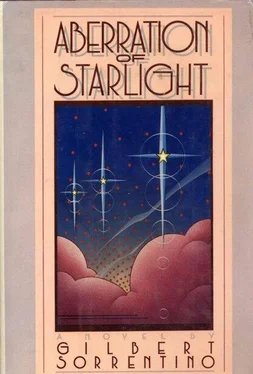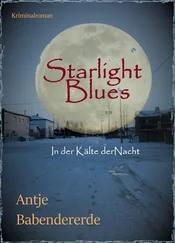When John mentioned favorably some neighbors, the Mertises, what were Bridget’s invariable remarks anent same? Anent the Huckles? the Svensons? the Astrups? the Phillipses? the Looneys? the Golds? the Finneys? the Finks? the O’Neills? the Loftuses?
The Mertises: One’s arse is fatter than the other. If they ever all got on a trolley at once they’d sink it right through the pavement.
The Huckles: The old man’s benny would fit Finn MacCool; the wife was a frightened bird, God bless her, she’s too homely to look in a mirror for fear of scaring herself to death; the son, Georgie, was a gawm, by God he was behind the door when they passed out the chins, God bless the mark.
The Svensons: The old Swede bastard can’t understand a word of English when you want a little steam heat but he’s a genius when the first of the month rolls around.
The Astrups: There must be a law against cracking a smile where they come from in Scandihoovia, the greenhorn riffraff.
The Phillipses: They last drew a sober breath when Napoleon was a cadet.
The Looneys: When the poor little stunted rat of a man stands on the street you could drive a coal truck between his knees; the oldest daughter Philomena is a respectable girl but it’s a misfortune that she looks like Ben Turpin.
The Golds: Pushy kikes. Do you see the cigar always stuck in the man’s mouth like some Jew shyster?
The Finneys: If Thelma Finney puts any more lipstick and rouge on that potato mug of hers they’ll take her for a stoplight. Ah well, you can’t blame the woman with Jack crawling home on his hands and knees every night from Flynn’s with the raving horrors.
The Finks: There’s more than meets the eye over there with His Nibs a master tool-and-die maker and sits on the porch all day reading his red newspapers and his wife scrubbing floors like a nigger.
The O’Neills: Not that I mean any disrespect to the church but with the pie faces those two children have stuck on them they’re good for a priest or a nun. For who would have them but God Himself? Mrs. O’Neill is holier than thou and well she should be as everyone knows that she drove her husband to drink and he died amidst a gang of bums and greaseballs in a charity ward in Kings County and nobody there to see the poor man draw his last breath.
The Loftuses: It’s because the father and mother are in their sixties at least that poor Jackie looks to be turning into a moron and well on the high road to being a morphodite.
What were some of John’s great disappointments in life?
The almost uncanny change that occurred in Bridget after the death of their second daughter. His decision not to go into the suggested partnership with William X. Whitestone. His failure to convince Bridget to allow him to see her in the nude. His son-in-law’s abandoning Marie for Margie, a quintessential shanty-Irish slut; it seemed somehow a horrifying judgment on his own life’s failure. His slow transformation into a miser.
How did he feel about his grandson?
Billy frightened and saddened him. In him he saw but another boy poised on the edge of life’s meaninglessness.
What misadventure befell John at Lake Hopatcong some ten years before Bridget’s death?
Walking down a wooden boat dock in the pitch dark, John stepped off its edge into six feet of water, much to the surprise, fright, and subsequent hilarity of Bridget, Marie, Tony, Ralph Sapurty, a certain Mr. and Mrs. Rydstrom of Bethpage, and Cornelius A. Ryan, an alcoholic attorney.
Detail some oddities springing from this mishap.
Later that night, after a hot bath and three ounces of the Christian Brothers brandy, John thought over this accidental plunge into the lake and felt suddenly young. He remembered a girl who lived across the street from him when he was a boy of thirteen or fourteen, remembered walking her to the bakery one Saturday afternoon in the fall and buying her hot chocolate in Otten’s ice-cream parlor, over which she told him that she wanted to be a nurse. It was at precisely this moment that he realized how magically lovely girls could be and he fell in love. Two months later, she and her mother and two sisters moved away after her father hanged himself in their backyard privy. Ten years after his marriage to Bridget, he mentioned this girl and discovered that Bridget had gone to school with her — had been, in fact, in her class — and that Bridget despised her for being a “dumb Polack who thought she was God’s gift to the world, oh yes, a regular little prima donna.”
Give John McGrath’s opinions on any and all movies.
“A bunch of horse’s asses.” “A bunch of goddamn fools.”
Give two conflicting reasons for the total apathy he felt toward the cinema.
His life and its problems were so present to him that he could not spare any of himself for the celluloid dramas of others. His life and its problems had worn him so thin that he found no parallels whatsoever in celluloid dramas.
What was the one truth in his life that he would not face?
That he had energetically conspired in his own defeat.
List a few of John’s memories of his brother Bill.
His Trilby hat. His silk foulards. The brilliance with which he danced the Peabody. His endless stock of dirty jokes. The odd fact that all his girl friends seemed to blush constantly. The lecherous eye he always cast on Bridget. His monumental capacity for whiskey. His hangover cure — two ounces of whiskey, an ounce of port, two or three dashes each of Worcestershire sauce and Tabasco, a slice of onion chopped fine, and a raw egg: “It builds up the red blood, my lad,” he’d say. His adoration of their mother and hatred of their father. The unearthly sweetness of his tenor voice before alcohol and cigars had wrecked it. The cornflower boutonnieres he wore on his summer suits. His amused tolerance of Bridget’s relatives: “One must be kind to the lame and the halt,” he’d say. The wry joke he made moments before his death. His long and womanly eyelashes.
What were, and had been, John’s feelings about Helga Schmidt?
Desire and lust, against which he fought.
Why did he fight against these feelings?
He fought against these feelings when Bridget was alive because Bridget was alive. He now fought against these feelings for far more subtle reasons: He asked himself that if he, at fifty-seven, could feel these sexual urges toward a woman of almost fifty, how then did Tom Thebus, a man in the prime of life, feel about Marie? The idea of Marie, involved in sexuality of any kind, troubled him more than he could understand. So he curiously reasoned that if he “really” didn’t feel anything toward Helga, Tom “really” didn’t feel anything toward Marie. An admission of the reality of his own lusts would allow the admission of the reality of Tom’s.
Had Bridget ever spoken to him of Helga Schmidt?
She had called her, in private, “Dutchie.” She seemed to like her and referred to her often as a “decent woman.” She regularly said that she had legs as strong as a horse. This latter image troubled and heated John, since he invariably thought of those legs wrapped around his back in coitus, in the position he had once seen a naked (but for stockings, shoes, and mask) woman in in a pornographic photograph Bud Halloran had shown around at the office.
What did Marie think of Helga Schmidt?
She was mildly hostile and openly contemptuous toward her. She poked fun at her accent, which she called “put on.” She often made references to her “setting her cap” for a good man.
How did John think of Marie’s attitude toward Helga?
He saw it as rude and self-serving. He thought that one, she wanted to marry him off to this Dutchwoman to get rid of him so that she could do whatever the goddamn hell she pleased; two, she wanted him married to this Dutchwoman so that he would be, if she proved right in her antipathy toward her, miserable for the rest of his life; three, she wanted to deny him any happiness he might possibly find with this Dutchwoman in his declining years by setting herself adamantly against any idea, however vague, of marriage. There was no way that he could reconcile these three theories.
Читать дальше












